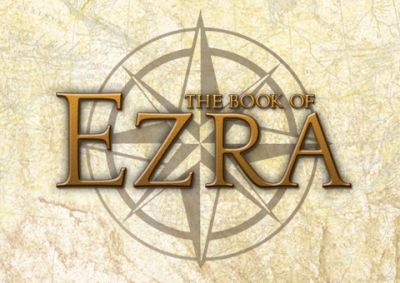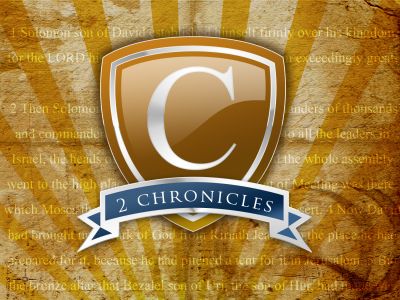Nehemiah
By Pastor Frank Gallegos, Sr. on July 03, 2015 in
Church News

Book of Nehemiah
Author:The Book of Nehemiah does not specifically name its author, but both Jewish and Christian traditions recognize Ezra as the author. This is based on the fact that the Books of Ezra and Nehemiah were originally one.
Date of Writing:The Book of Nehemiah was likely written between 445 and 420 B.C.
Purpose of Writing:The Book of Nehemiah, one of the history books of the Bible, continues the story of Israel’s return from the Babylonian captivity and the rebuilding of the temple in Jerusalem.
Key Verses:Nehemiah 1:3, “They said to me, ‘Those who survived the exile and are back in the province are in great trouble and disgrace. The wall of Jerusalem is broken down, and its gates have been burned with fire.’”
Nehemiah 1:11, “O Lord, let your ear be attentive to the prayer of this your servant and to the prayer of your servants who delight in revering your name. Give your servant success today by granting him favor in the presence of this man.”
Nehemiah 6:15-16, “So the wall was completed on the twenty-fifth of Elul, in fifty-two days. When all our enemies heard about this, all the surrounding nations were afraid and lost their self-confidence, because they realized that this work had been done with the help of our God.”
Brief Summary:Nehemiah was a Hebrew in Persia when the word reached him that the Temple in Jerusalem was being reconstructed. He grew anxious knowing there was no wall to protect the city. Nehemiah invited God to use him to save the city. God answered his prayer by softening the heart of the Persian king, Artaxerxes, who gave not only his blessing, but also supplies to be used in the project. Nehemiah is given permission by the king to return to Jerusalem, where he is made governor.
In spite of opposition and accusations the wall was built and the enemies silenced. The people, inspired by Nehemiah, give tithes of much money, supplies and manpower to complete the wall in a remarkable 52 days, despite much opposition. This united effort is short-lived, however, because Jerusalem falls back into apostasy when Nehemiah leaves for a while. After 12 years he returned to find the walls strong but the people weak. He set about the task of teaching the people morality and he didn’t mince words. “I argued with those people, put curses on them, hit some of them and pulled out their hair” (13:25). He reestablishes true worship through prayer and by encouraging the people to revival by reading and adhering to the Word of God.
Foreshadowings:Nehemiah was a man of prayer and he prayed passionately for his people (Nehemiah 1). His zealous intercession for God’s people foreshadows our great Intercessor, Jesus Christ, who prayed fervently for His people in His high-priestly prayer inJohn 17. Both Nehemiah and Jesus had a burning love for God’s people which they poured out in prayer to God, interceding for them before the throne.
Practical Application:Nehemiah led the Israelites into a respect and love for the text of Scripture. Nehemiah, because of his love for God and his desire to see God honored and glorified, led the Israelites towards the faith and obedience God had desired for them for so long. In the same way, Christians are to love and revere the truths of Scripture, commit them to memory, meditate on them day and night, and turn to them for the fulfillment of every spiritual need.Second Timothy 3:16tells us, “All scripture is given by inspiration of God, and is profitable for doctrine, for reproof, for correction, for instruction in righteousness: that the man of God may be perfect, thoroughly furnished unto all good works.” If we expect to experience the spiritual revival of the Israelites (Nehemiah 8:1-8), we must begin with God’s Word.
Each of us ought to have genuine compassion for others who have spiritual or physical hurts. To feel compassion, yet do nothing to help, is unfounded biblically. At times we may have to give up our own comfort in order to minister properly to others. We must totally believe in a cause before we will give our time or money to it with the right heart. When we allow God to minister through us, even unbelievers will know it is God’s work.
Read more:http://www.gotquestions.org/Book-of-Nehemiah.html#ixzz3el1idwmP
Ezra
By Pastor Frank Gallegos, Sr. on July 03, 2015 in
Church News

Book of Ezra
Author: The Book of Ezra does not specifically name its author. The tradition is that the prophet Ezra wrote the Book of Ezra. It is interesting to note that once Ezra appears on the scene in chapter 7, the author of the Book of Ezra switches from writing in the third person to first person. This would also lend credibility to Ezra being the author.
Date of Writing: The Book of Ezra was likely written between 460 and 440 B.C.
Purpose of Writing: The Book of Ezra is devoted to events occurring in the land of Israel at the time of the return from the Babylonian captivity and subsequent years, covering a period of approximately one century, beginning in 538 B.C. The emphasis in Ezra is on the rebuilding of the Temple. The book contains extensive genealogical records, principally for the purpose of establishing the claims to the priesthood on the part of the descendants of Aaron.
Key Verses: Ezra 3:11“With praise and thanksgiving they sang to the LORD: ‘He is good; his love to Israel endures forever.’ And all the people gave a great shout of praise to the LORD, because the foundation of the house of the LORD was laid.”
Ezra 7:6, “…this Ezra came up from Babylon. He was a teacher well versed in the Law of Moses, which the LORD, the God of Israel, had given. The king had granted him everything he asked, for the hand of the LORD his God was on him.”
Brief Summary: The book may be divided as follows: Chapters 1-6—The First Return under Zerubbabel, and the Building of the Second Temple. Chapters 7-10—The Ministry of Ezra. Since well over half a century elapsed between chapters 6 and 7, the characters of the first part of the book had died by the time Ezra began his ministry in Jerusalem. Ezra is the one person who is prominent in the Books of Ezra and Nehemiah. Both books end with prayers of confession (Ezra 9;Nehemiah 9) and a subsequent separation of the people from the sinful practices into which they had fallen. Some concept of the nature of the encouraging messages of Haggai and Zechariah, who are introduced in this narrative (Ezra 5:1), may be seen in the prophetic books that bear their names.
The Book of Ezra covers the return from captivity to rebuild the Temple up to the decree of Artaxerxes, the event covered at the beginning of the Book of Nehemiah. Haggai was the main prophet in the day of Ezra, and Zechariah was the prophet in the day of Nehemiah.
Foreshadowings: We see in the Book of Ezra a continuation of the biblical theme of the remnant. Whenever disaster or judgment falls, God always saves a tiny remnant for Himself—Noah and his family from the destruction of the flood; Lot’s family from Sodom and Gomorrah; the 7000 prophets reserved in Israel despite the persecution of Ahab and Jezebel. When the Israelites were taken into captivity in Egypt, God delivered His remnant and took them to the Promised Land. Some fifty thousand people return to the land of Judea in Ezra 2:64-67, and yet, as they compare themselves with the numbers in Israel during its prosperous days under King David, their comment is, “We are left this day as a remnant.” The remnant theme is carried into the New Testament where Paul tells us that “at the present time there is a remnant chosen by grace” (Romans 11:5). Although most people of Jesus’ day rejected Him, there remained a set of people whom God had reserved and preserved in his Son, and in the covenant of His grace. Throughout all generations since Christ, there is the remnant of the faithful whose feet are on the narrow road that leads to eternal life (Matthew 7:13-14). This remnant will be preserved through the power of the Holy Spirit who has sealed them and who will deliver them safely at the last day (2 Corinthians 1:22;Ephesians 4:30).
Practical Application: The Book of Ezra is a chronicle of hope and restoration. For the Christian whose life is scarred by sin and rebellion against God, there is great hope that ours is a God of forgiveness, a God who will not turn His back on us when we seek Him in repentance and brokenness (1 John 1:9). The return of the Israelites to Jerusalem and the rebuilding of the Temple are repeated in the life of every Christian who returns from the captivity of sin and rebellion against God and finds in Him a loving welcome home. No matter how long we have been away, He is ready to forgive us and receive us back into His family. He is willing to show us how to rebuild our lives and resurrect our hearts, wherein is the temple of the Holy Spirit. As with the rebuilding of the temple in Jerusalem, God superintends the work of renovating and rededicating our lives to His service.
The opposition of the adversaries of God to the rebuilding of the temple displays a pattern that is typical of that of the enemy of our souls. Satan uses those who would appear to be in sync with God’s purposes to deceive us and attempt to thwart God’s plans.Ezra 4:2describes the deceptive speech of those who claim to worship Christ but whose real intent is to tear down, not to build up. We are to be on guard against such deceivers, respond to them as the Israelites did, and refuse to be fooled by their smooth words and false professions of faith.
Read more:http://www.gotquestions.org/Book-of-Ezra.html#ixzz3el17uiGT
2 Chronicles
By Pastor Frank Gallegos, Sr. on June 11, 2015 in
Church News

Book of 2 Chronicles
Author: The Book of 2 Chronicles does not specifically name its author. The tradition is that 1 and 2 Chronicles were written by Ezra.
Date of Writing: The Book of 2 Chronicles was likely written between 450 and 425 B.C.
Purpose of Writing: The Books of 1 & 2 Chronicles cover mostly the same information as 1 & 2 Samuel and 1 & 2 Kings. The Books of 1 & 2 Chronicles focus more on the priestly aspect of the time period. The Book of 2 Chronicles is essentially an evaluation of the nation’s religious history.
Key Verses: 2 Chronicles 2:1, “Solomon gave orders to build a temple for the Name of the LORD and a royal palace for himself.”
2 Chronicles 29:1-3, “Hezekiah was twenty-five years old when he became king, and he reigned in Jerusalem twenty-nine years. His mother’s name was Abijah daughter of Zechariah. He did what was right in the eyes of the LORD, just as his father David had done. In the first month of the first year of his reign, he opened the doors of the temple of the LORD and repaired them.”
2 Chronicles 36:14, “Furthermore, all the leaders of the priests and the people became more and more unfaithful, following all the detestable practices of the nations and defiling the temple of the LORD, which he had consecrated in Jerusalem.”
2 Chronicles 36:23, “This is what Cyrus king of Persia says: ‘The LORD, the God of heaven, has given me all the kingdoms of the earth and he has appointed me to build a temple for him at Jerusalem in Judah. Anyone of his people among you—may the LORD his God be with him, and let him go up.’”
Brief Summary: The Book of 2 Chronicles records the history of the Southern Kingdom of Judah, from the reign of Solomon to the conclusion of the Babylonian exile. The decline of Judah is disappointing, but emphasis is given to the spiritual reformers who zealously seek to turn the people back to God. Little is said about the bad kings or of the failures of good kings; only goodness is stressed. Since 2 Chronicles takes a priestly perspective, the Northern Kingdom of Israel is rarely mentioned because of her false worship and refusal to acknowledge the Temple of Jerusalem. Second Chronicles concludes with the final destruction of Jerusalem and the Temple.
Foreshadowings: As with all references to kings and temples in the Old Testament, we see in them a reflection of the true King of Kings—Jesus Christ—and of the temple of the Holy Spirit—His people. Even the best of the kings of Israel had the faults of all sinful men and led the people imperfectly. But when the King of Kings comes to live and reign on the earth in the millennium, he will establish Himself on the throne of all the earth as the rightful heir of David. Only then will we have a perfect King who will reign in righteousness and holiness, something the best of Israel’s kings could only dream of.
Similarly, the great temple built by Solomon was not designed to last forever. Just 150 years later, it was in need of repair from decay and defacing by future generations who turned back to idolatry (2 Kings 12). But the temple of the Holy Spirit—those who belong to Christ—will live forever. We who belong to Jesus are that temple, made not by hands but by the will of God (John 1:12-13). The Spirit who lives within us will never depart from us and will deliver us safely into the hands of God one day (Ephesians 1:13; 4:30). No earthly temple contains that promise.
Practical Application: The reader of the Chronicles is invited to evaluate each generation from the past and discern why each was blessed for their obedience or punished for their wickedness. But we are also to compare the plight of these generations to our own, both corporately and individually. If we or our nation or our church is experiencing hardships, it is to our benefit to compare our beliefs and how we act upon those beliefs with the experiences of the Israelites under the various kings. God hates sin and will not tolerate it. But if the Chronicles teach us anything, it is that God desires to forgive and heal those who will humbly pray and repent (1 John 1:9).
If you could have anything you wished from God, what would you ask for? Fabulous wealth? Perfect health for you and your loved ones? The power over life and death? Amazing to think about it, isn’t it? But more amazing is that God made such an offer to Solomon and he chose none of these things. What he asked for was wisdom and knowledge to complete the task God had assigned to him and to do it well. The lesson for us is that God has given each of us a commission to fulfill and the greatest blessing we can seek from God is the ability to carry out His will for our lives. For that, we need the “wisdom from above” (James 3:17) to discern His will, as well as the understanding and intimate knowledge of Him in order to motivate us to Christlikeness in both deed and attitude (James 3:13).
Read more: http://www.gotquestions.org/Book-of-2-Chronicles.html#ixzz3cVqmQZEm
Page 15 of 19 pages ‹ First < 13 14 15 16 17 > Last ›




